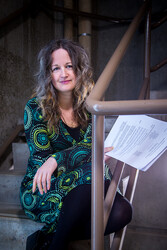Plus, receive recommendations and exclusive offers on all of your favorite books and authors from Simon & Schuster.
The Countryside
Ten Rural Walks Through Britain and Its Hidden History of Empire
Table of Contents
About The Book
The green fields, rugged highlands, and rolling hills of England, Scotland, and Wales are commonly associated with adventure, romance, and seclusion as well as literary figures like Jane Austen and William Wordsworth. But in reality, many of these rural places—with their country houses, lakes, and shorelines—were profoundly changed by British colonial activity. Even hamlets and villages were affected by distant colonial events.
Taking ten country walks, author Corinne Fowler explores the unique colonial dimensions of British agriculture, copper-mining, landownership, wool-making, coastal trade, and factory work in cotton mills. One route shows the links between English country houses and Indian colonization. Another explores banking history in Southern England and its link to slavery on Louisianan plantations. Other walks uncover the historical impact of sugar profits on the Scottish isles and 18th-century tobacco imports on an English coastal port. The history of these countryside locations—and the people who lived and worked in them—is closely bound up with colonial rule in far-away continents.
Accompanying the author on her walks are a fascinating group of people—artists, musicians, and writers—with strong attachments to the landscapes featured in this book and family links to former British colonies like Barbados and Senegal. These companions illuminate the meaning of colonial history in local settings. Crucially, this is not just a history book but a compassionate reflection on the way we respond to sensitive, shared histories which link people across cultures, generations, and political divides.
About The Reader
Corinne Fowler is Professor of Colonialism and Heritage in Museum Studies at the University of Leicester. In 2020, Corinne coauthored an audit of peer-reviewed research about the National Trust, which cares for over 300 stately homes, a third of which have multiple connections to the British empire. The report became a major media story and won the 2022 Museums and Heritage Judges’ Special Recognition Award and an Eastern Eye Award in 2023. Corinne directed Colonial Countryside: National Trust Houses Reinterpreted (2017–2022), a child-led history and writing project, with the commissioned photographer and Turner Prize shortlisted artist, Ingrid Pollard (2018–2022). Her most recent book is Green Unpleasant Land: Creative Responses to Rural England’s Colonial Connections (2020, Peepal Tree Press).
Product Details
- Publisher: Simon & Schuster Audio (June 11, 2024)
- Runtime: 12 hours
- ISBN13: 9781797180687
Browse Related Books
Resources and Downloads
High Resolution Images
- Book Cover Image (jpg): The Countryside Unabridged Audio Download 9781797180687
- Author Photo (jpg): Corinne Fowler Photograph by Osbourne Photography(0.1 MB)
Any use of an author photo must include its respective photo credit





